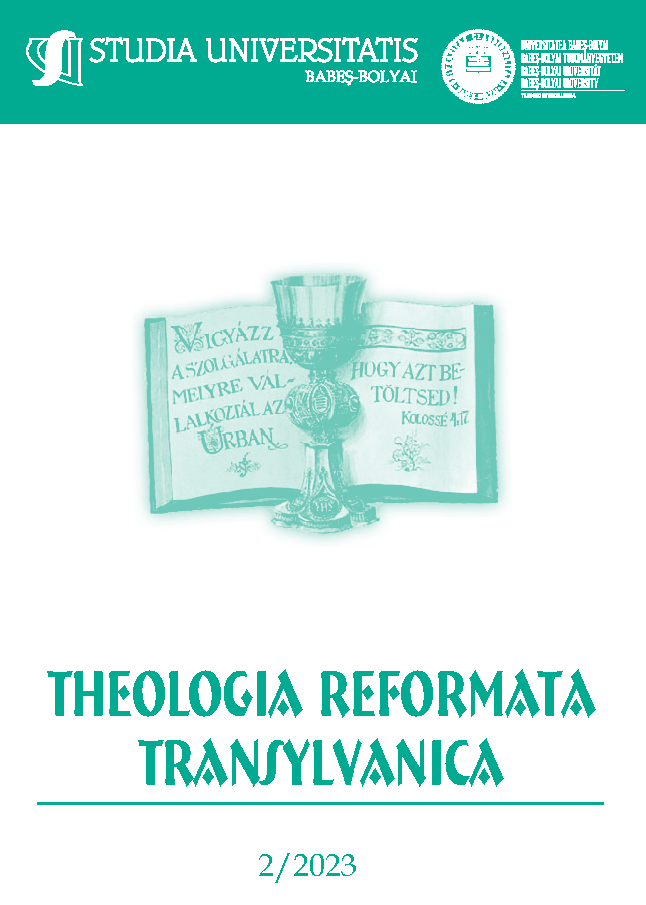A CONCISE ASSESSMENT OF DUTCH ECCLESIASTICAL AND THEOLOGICAL IMPACTS ON JENŐ SEBESTYÉN’S THINKING
A CONCISE ASSESSMENT OF DUTCH ECCLESIASTICAL AND THEOLOGICAL IMPACTS ON JENŐ SEBESTYÉN’S THINKING
Author(s): Ábrahám Kovács, László SzabóSubject(s): Systematic Theology
Published by: Studia Universitatis Babes-Bolyai
Keywords: Kuyper; Bavinck; historical Calvinism; Dutch theology Jenő Sebestyén’s Life and Work through Dutch Reformed Eyes;
Summary/Abstract: Jenő Sebestyén, professor of systematic theology from Budapest, is often portrayed as the founding father of historical Calvinism in Hungary. The theological movement exhibits clearly a Dutch impact. He is often seen as a Kuyperian scholar who disseminated the famous Dutch theologian and churchman’s idea amongst Hungarian Reformed people. The current paper seeks to examine whether this statement is true in regard to his systematic theological thinking. By performing a statistical examination of the references found in his magnum opus, Református Dogmatika [Reformed Dogmatics], a surprising discovery was made. Herman Bavinck was cited more than Abraham Kuyper. Besides, it is also proved that other Dutch theologians, such as Jan Jacob van Oosterzee and Eskelhoff Gravemeyer, not to mention Louis Berkhof, also made an impact on the formation of idea about Reformed doctrine. Therefore, as far as his book on dogmatics is concerned, the research shows a far more nuanced picture of the impact made on him. The paper highlighted that his presentation as merely a Kuyperian scholar is a simplification.
Journal: Studia Universitatis Babeș - Bolyai Theologia Reformata Transylvanica
- Issue Year: 68/2023
- Issue No: 2
- Page Range: 89-115
- Page Count: 28
- Language: English

